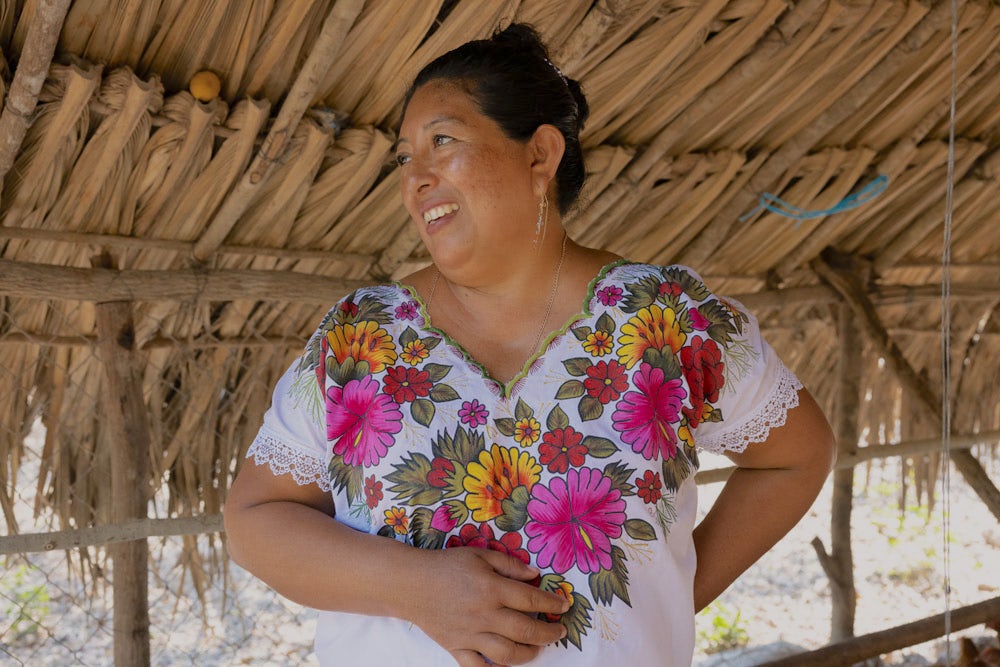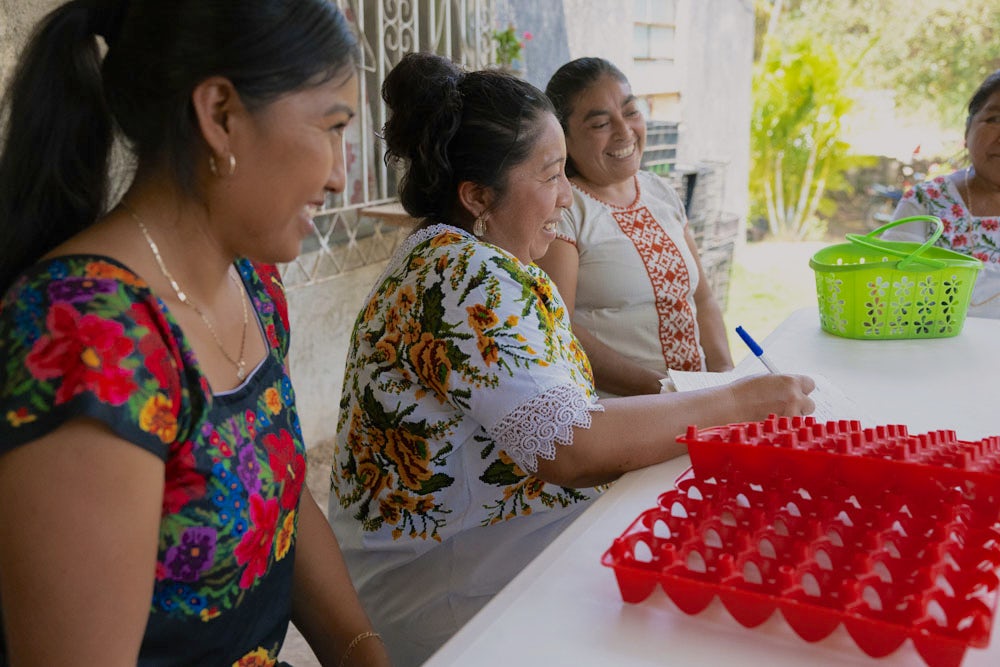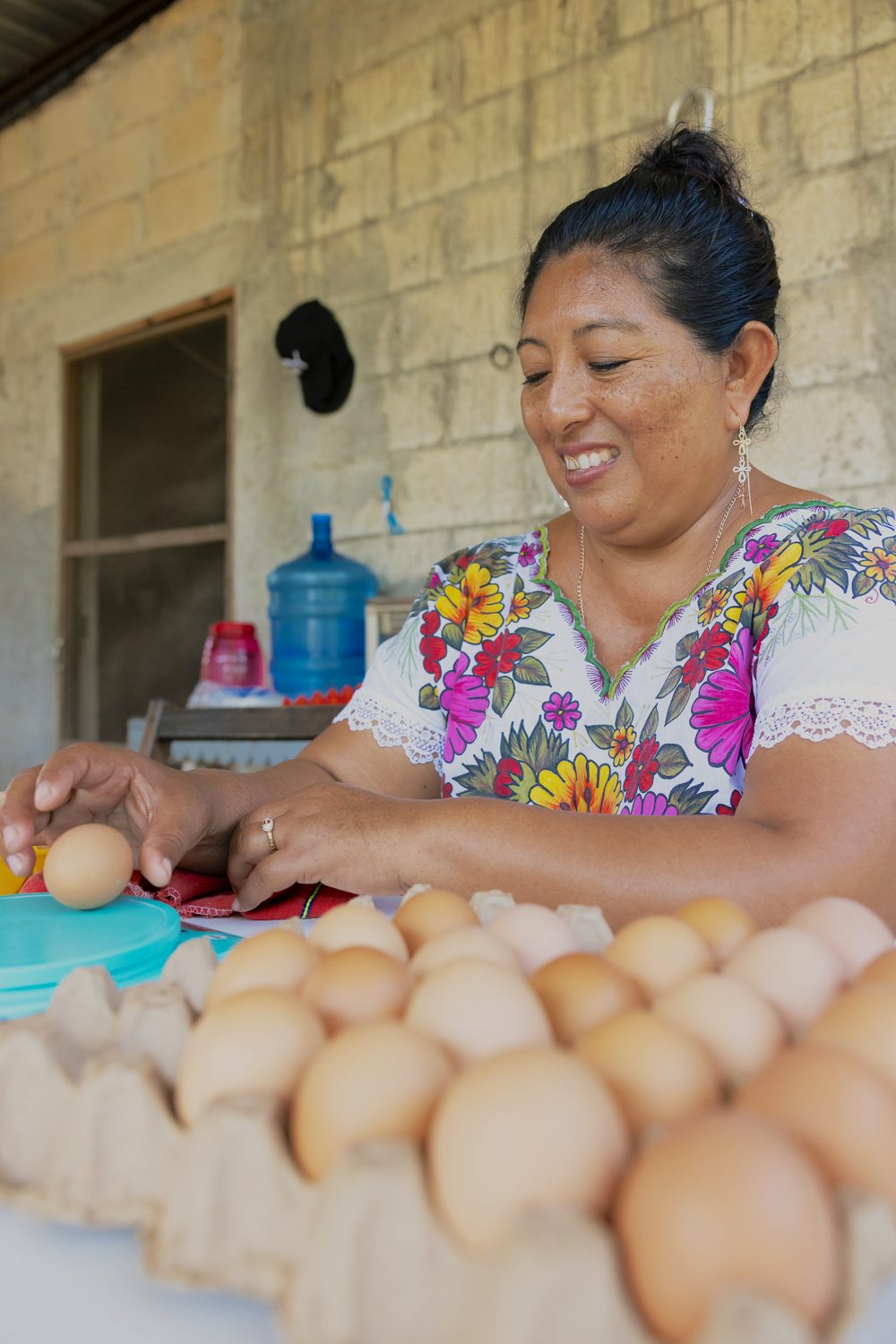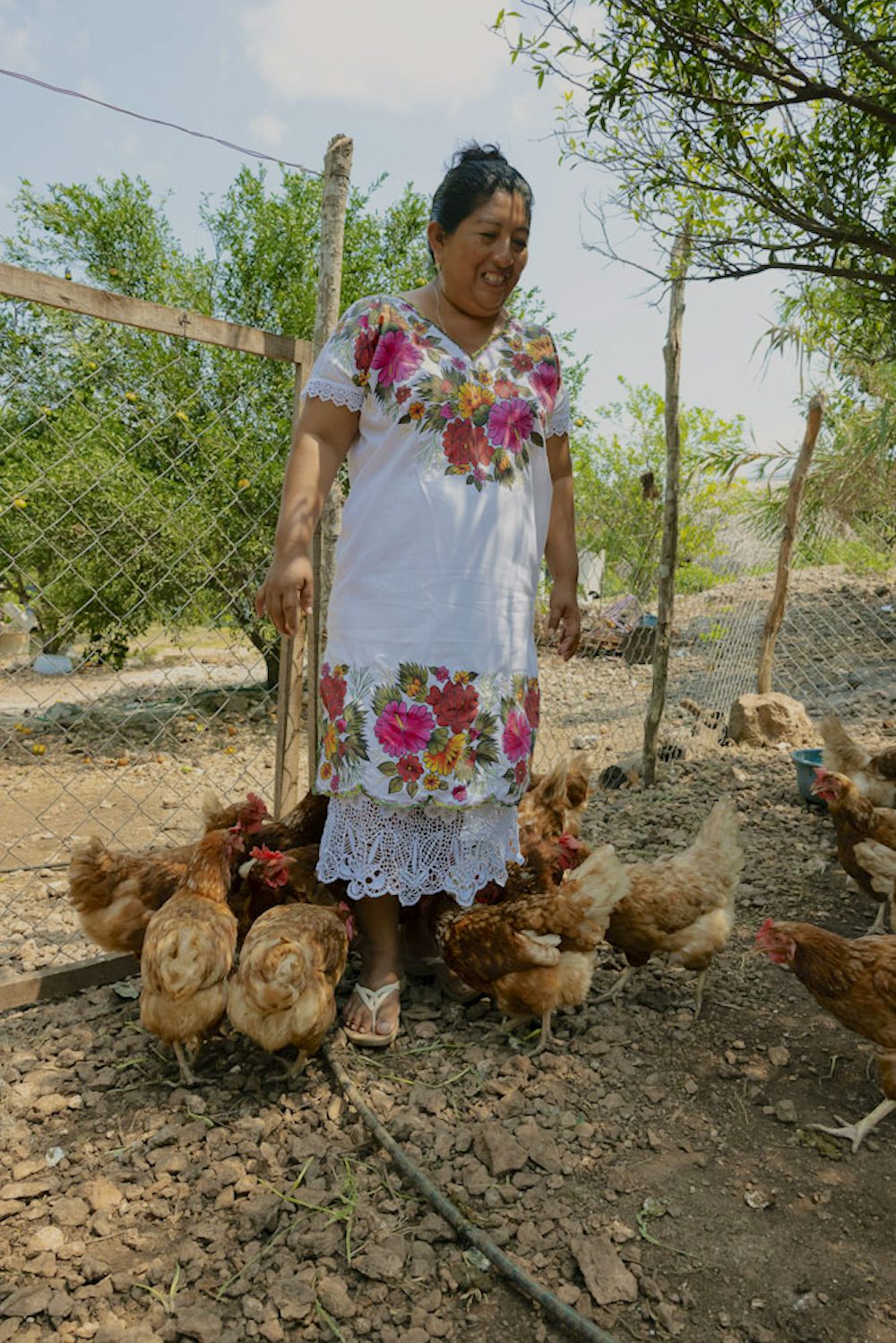When Magali Martín May, a mother of a farming family in the town of Emiliano Zapata, in Mexico’s Yucatán state, lost her 6-month-old son, she fell into a deep depression. “I searched but I couldn’t find myself,” she said.
Her husband, Juan Bautista Camay, also mourned, but for Magali, the grief was overwhelming, so much so the couple considered selling their home and moving their family to a different region to give her a fresh start. “I didn’t want to stay here anymore,” she said.
But Magali’s friends urged her to reconsider, telling her the grief would, slowly, ease and that she and Juan would be happy again. “I listened to them,” she said, and the couple and their two older children stayed in Emiliano Zapata.

They say time heals, but Magali sensed her healing required more than time: she needed, she knew, a sense of purpose beyond being a housewife and a mother. She had long felt a palpable desire to contribute, both to her family’s household income and to her community. After her infant’s death, it had become imperative.
“I had always wanted to do something here in the community,” Magali said. “I had always thought, what should I do to contribute my bit?”
Although smallholder farmers produce approximately 40 percent of the food in Mexico, they are the country’s most food insecure. In Yucatán, where Magali and her family live, nearly 48 percent of the population lives in poverty and approximately 23 percent lack access to nutritious food.
Additionally, though many women in rural Mexico are involved in agriculture, their primary job is to care for the home and the children; men are, traditionally, the breadwinners, leaving women with minimal opportunities to participate in family and community decision-making.
Yet, across Mexico, particularly in its urban areas, there is a growing demand for foods that are produced using ethical, environmentally friendly practices that many small-scale farmers, like Magali’s family, are inclined to use.
In 2020, during the height of the COVID-19 pandemic, Heifer Mexico partnered with the W.K. Kellogg Foundation to address this spectrum of issues and opportunities, harnessing the demand for sustainably produced foods to ease poverty and food insecurity and foster gender equality.

The project would build on the progress of previous initiatives, establishing the Kikibá women’s collective to help women in Yucatán and Quintana Roo learn to care for hens sustainably and connect to local buyers; this, in turn, would help meet the demand for ethically produced, cage-free eggs and it would, in the process, increase women’s income-earning potential.
Meanwhile, in Emiliano Zapata, Magali began to hear about the Kikibá collective and she was intrigued. When she learned the project would distribute 50 hens to each participant and offer training to help them learn how to care for them, she knew it was the right opportunity for her.
“I had always wanted to have my own animals, but it had not been possible,” she said. At first, she was daunted by the investment the program would require — each participant would need to build a chicken coop and purchase feed. But her husband, a citrus farmer, encouraged her. “He told me that the price of lemons had increased and that he had done well. We could now invest, and I was happy.”

Training helped Magali and others in the collective learn business skills: “how to form a small company, because that is what we are.” She tracks how many eggs she collects and sells, how much she invests in feed and how much she profits. Before the project, she said, “I had no idea how to do all that.” The project has helped her to be less anxious about the future and to feel secure, knowing her business, “can’t be taken away overnight.”
Magali’s husband built the coop and she engaged her children in helping her care for the hens. In fact, the project encourages participants to involve their families in caring for the chickens. Magali is thankful for this, saying that it helped her children’s emotional well-being during the height of the COVID-19 pandemic.
“My children were in online classes. They were upset because we couldn't go out, we couldn't go to church, we didn't go for walks … Once the chickens arrived, we would go together to sweep the yard, clean their feeders, look for grass. We had to go see them all the time because it was something new for us,” she said. “A lot people here had it [depression] very bad.” But Magali’s children thrived because, she said, they, too, had a sense of purpose; their help was needed.
In the beginning, Magali gave the eggs away to neighbors and passersby so they could taste just how delicious cage-free, stress-free eggs are. Today, she said, she can’t keep up with the demand, even though she has tripled the size of her flock, from 50 to 160 hens.

Magali is now earning a living wage, which she is investing in her children’s education and putting back into her business. She was even able to reimburse her husband for the initial investment he made to help her get started. And, from time to time, she admits, she indulges herself. “If I want some shoes, I take the money and I buy them. Because it's my money, I'm working for it. Now I can say that Magali can buy her own things, she's working for it.”
She has new skills, she adds, and she has support from her family and from the Kikibá community. And, her hens, she said, love her. “I call them girls, my girls. When they hear me clapping, they come and crowd around me. In fact, when I come here with them, I usually sit down and start talking to them.”
Her husband tells her she has changed a lot. “I tell him that I have waited so long for this moment, and I am not going to waste it,” she explained. “Through the project I have realized who Magali really is. I have seen that I can move forward. Even though I have gone through many trials and many problems, I am still here.”
And, she said, she smiles a lot more.